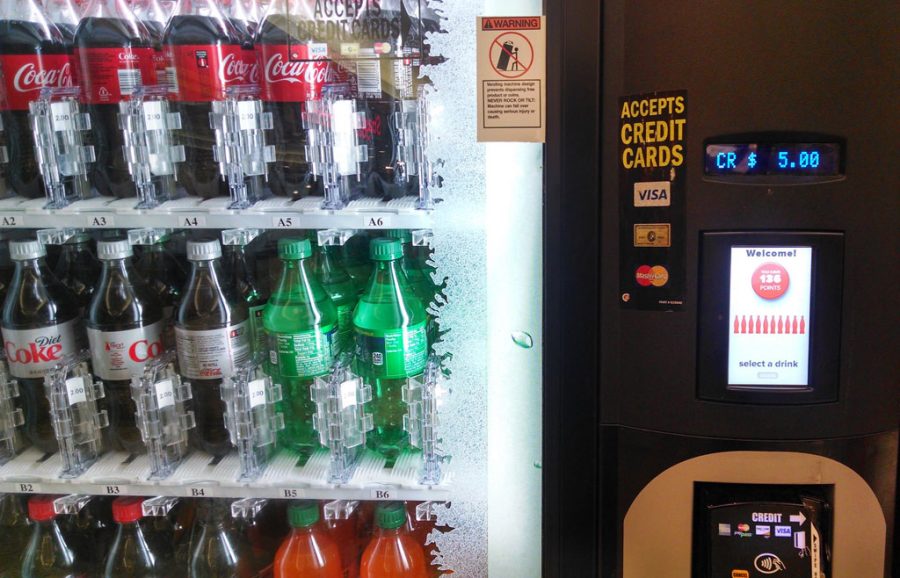Sugar-free and diet drinks are often viewed as being more beneficial to your health and promoting healthier lifestyles. As many students see a shift in what their cafeterias and vending machines look like, one might ask — why did Lakota West adopt all zero sugar and/or calorie drinks?
Diet drinks are made by substituting sugar with artificial sweeteners such as saccharin or aspartame. This allows the drink to obtain a similar taste as its sugar-0filled alternative. Many people have begun to associate ‘zero calories’ on the nutrition label with a healthy lifestyle.
Unfortunately, while the calorie intake from that drink is reduced, your craving for a sugary implement increases. In a recent USC study, the controversial topic is proven to directly relate diet sodas and obesity. The study was funded by the National Institute of Diabetes and Digestive and Kidney Diseases and was led by Kathleen Page. The study also showed an across-the-board decrease in levels of hormones that tell the body “I feel full” after participants drank the sucralose-containing drink compared to the sucrose-containing drink, suggesting artificially sweetened beverages may not be effective in suppressing hunger.
All in all, Lakota West changing their vending machines and cafeteria selection to all zero sugar and calorie drinks is not necessarily beneficial. It can actually be more harmful in the long run to the health of the student clientele.








Kyler • Mar 23, 2022 at 8:30 am
Diet drinks that substitute aspartame for sugar are far worse for you, and may even be harmful. Dr. Alan Gaby, MD, reported in Alternative Medicine Review in 2007 that aspartame found in commercial products or heated beverages may be a seizure trigger and should be evaluated in cases of difficult seizure management. However, seizures are not the only thing consumers should be worried about. Lab tests showed that massive doses of these two compounds caused cancer and other disorders in laboratory animals.
While aspartame is indeed approved by the FDA, the consumer advocate organization Center for Science in the Public Interest has cited numerous studies that suggest problems with the sweetener, including a study by the Harvard School of Public Health.
This begs the question are diet beverages and foods really helping the people its suppose to be created for, or is it a massive fail?
Trin. M • Dec 8, 2021 at 11:58 am
That actually makes sense. I drank a zero-sugar drink from a vending machine at school and the next thing I know, I got a drink every day for the whole week. It took me thinking about my health (and running out of money) to stop drinking it. Every once and a while is okay but, sugar is already a drug. Fake sugars and other highly addictive supplements do not benefit out health. I do believe the school needs more water and lemonade in their vending machines.
Thanks for the read! 🙂